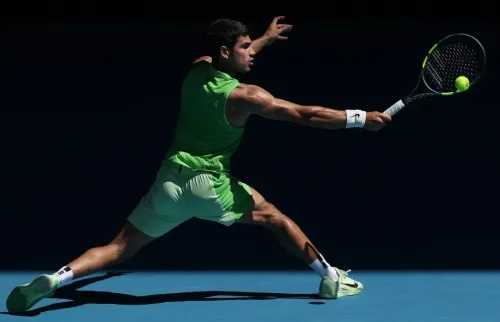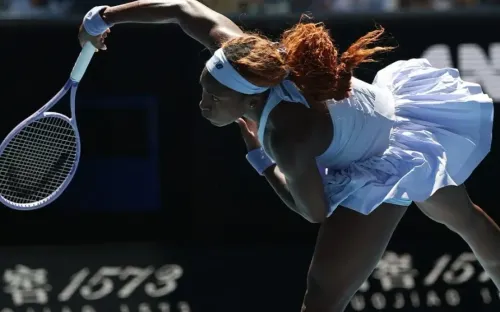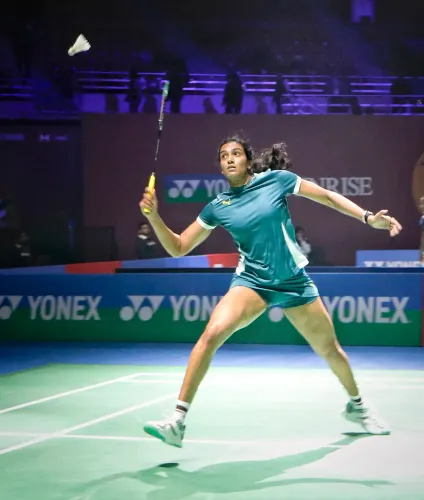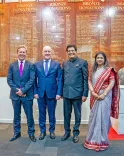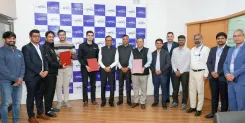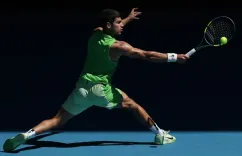How Does IPC Leadership Training Empower Paralympians for Life After Sports?
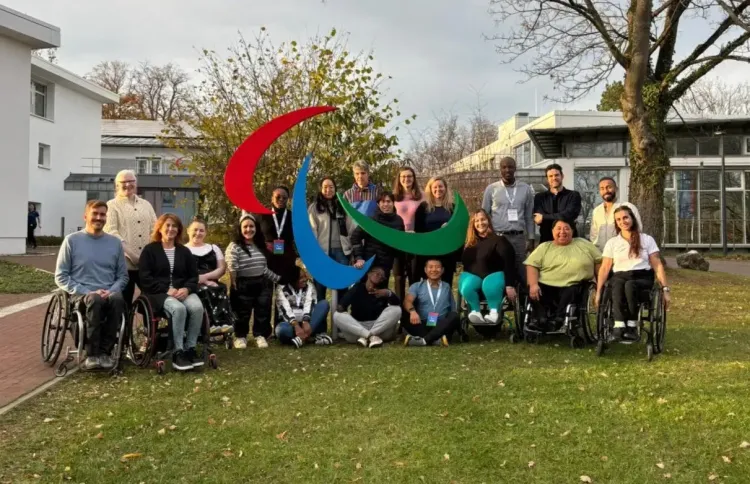
Synopsis
Key Takeaways
- Leadership development is essential for athletes transitioning from sports.
- The program aims to empower Paralympians to become effective leaders.
- Participants receive training in advocacy and communication.
- Networking opportunities are provided to foster career growth.
- The program emphasizes the ongoing contributions of athletes beyond competition.
Bonn (Germany), Nov 19 (NationPress) A curated assembly of 20 Paralympians convened from November 10 to 14, 2025 at the International Paralympic Committee (IPC) Campus in Bonn, Germany, to engage in a leadership training initiative aimed at facilitating their transition from elite sports to post-competitive life, paving a new trajectory from the arenas to corporate environments.
The leadership training initiative, dubbed IPC Para Athlete Professionals, is designed to arm retiring athletes with essential tools, insights, and platforms needed to become confident and effective leaders. By leveraging their personal experiences and distinct perspectives, this program strives to prepare athletes to make meaningful contributions to the Paralympic Movement and beyond. This annual program, running from 2025 to 2028 under the IPC’s Sport for Mobility framework, will employ a mix of in-person and online instruction.
In the 2025 selection cycle, more than 80 applicants were considered, with 20 Paralympians chosen from 18 nations, including 13 women, representing regions such as Asia, the Americas, Africa, Europe, and Oceania. The cohort comprises elite athletes from 13 varied sports, showcasing the rich diversity of the Paralympic Movement. The six-month program is slated to wrap up in May 2026, as announced by the IPC in a recent press release.
The initial phase of training, which unfolded over five days at the IPC Campus, concentrated on critical aspects such as career transition, governance, pathways to influence, leadership evolution, and advocacy communication. Participants also enjoyed two exclusive sessions, one led by IPC President Andrew Parsons and another by IPC CEO Dr. Mike Peters PLY.
Dr. Mike Peters, a two-time Paralympian, expressed his enthusiasm: “I am thrilled that through our Sport for Mobility initiative we can provide these 20 remarkable Paralympians with the tools necessary for advancing their careers beyond the sporting arena. We acknowledge that their journey doesn’t conclude with competition, and these athletes hold a crucial role in shaping the future as leaders. I eagerly anticipate seeing how the 2025 cohort seizes this opportunity to instigate change and flourish in their careers.”
Canadian Para athlete Jason Dunkerley, a participant in the program, remarked: “It’s vital the IPC offers a program like this because the transition to life post-sport is quite challenging. Many of us feel adrift or uncertain about what lies ahead, and it’s empowering to understand that opportunities exist and we are not isolated in this journey. There are promising prospects ahead, and we have much to contribute.”
The 2025 cohort features Paralympians with a wide array of sports expertise and achievements, including: Adeline Dumapong Ancheta (Philippines) – Para powerlifting; Anchaya Ketkeaw (Thailand) – Para swimming; Brenda Sardon (Argentina) – Para rowing and Para canoe; Daniel Giraldo Correa (Colombia) – Para swimming; Danielle Liza-Jean Ellis (Canada) – Sitting volleyball; Emile Cadet Vuningabo (Rwanda) – Sitting volleyball; Hanah Ngendo Mwangi (Kenya) – Para athletics; Jason Joseph Dunkerley (Canada) – Para athletics; Jiachao Wang (China) – Para swimming and Para triathlon; Kelly Gallagher (Great Britain) – Para alpine skiing; Kerrie Louise Leonard (Ireland) – Para archery; María Francisca Mardones Sepulveda (Chile) – Para athletics; Maximillian Tan Chern (Singapore) – Para equestrian; Natalie Claire Alexander (Australia) – Wheelchair basketball; Nicholas Alexander Cummins (Great Britain) – Wheelchair rugby; Nour Mohammed Al Sana (Saudi Arabia) – Para athletics; Petra Lévay (Hungary) – Para triathlon; Ritah Asiimwe (Uganda) – Para badminton; Shanntol Annette Ince (Trinidad and Tobago) – Para swimming; and Vianney Marlen Trejo Delgadillo (Mexico) – Para swimming.
Adeline Dumapong, a powerlifter from the Philippines, stated: “I’m immensely thankful that the IPC acknowledges the skills we need not only to succeed in sports but also in the workforce. There is a concerted effort to assist Paralympians in transitioning into professional roles. The knowledge and skills I acquire here will enable me to make a greater contribution to my National Paralympic Committee.”



